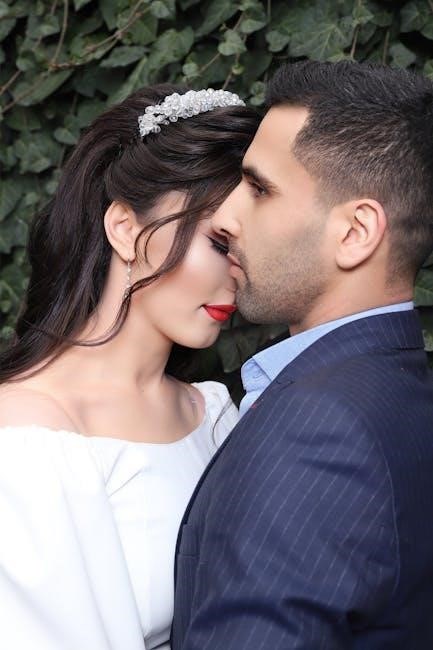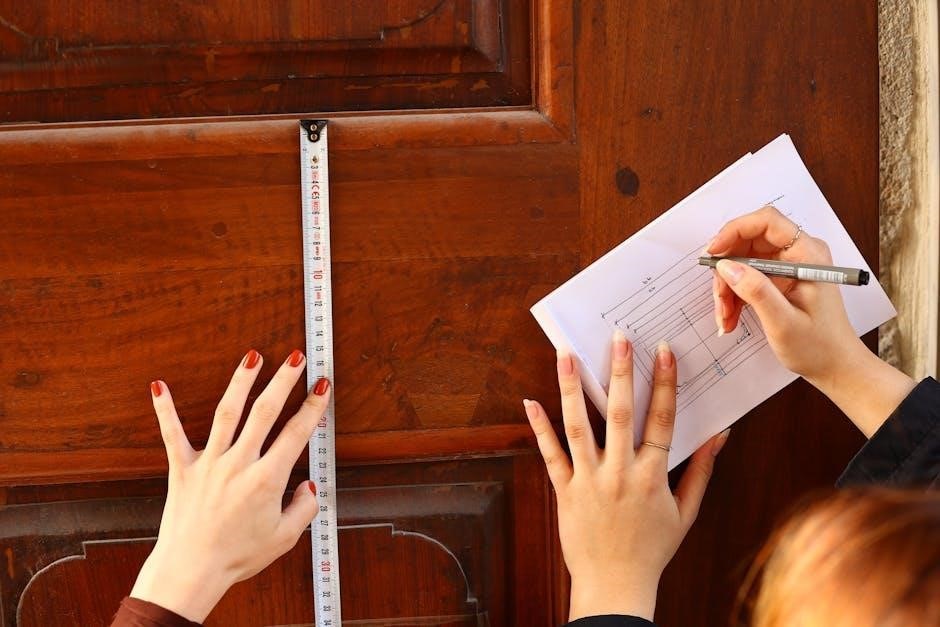Qunoot Dua is a profound Islamic supplication, seeking Allah’s help, forgiveness, and blessings․ It is recited during specific prayers, emphasizing faith and gratitude, and is a vital act of worship․
Definition and Overview
Qunoot Dua is a heartfelt supplication in Islam, recited during specific prayers, particularly in the Witr and Fajr prayers․ It involves standing humbly before Allah, seeking help, forgiveness, and blessings․ The term “Qunoot” originates from the Arabic word “qanata,” meaning to stand in humility․ This supplication is not obligatory but is a Sunnah, recommended by the Prophet Muhammad (PBUH)․ It is often recited in the third rakat of Witr prayer, emphasizing faith, trust, and gratitude to Allah while disassociating from disobedience․ Its adaptability allows Muslims to incorporate Quranic verses or Hadith-based supplications, making it a versatile and meaningful act of worship․
Importance of Dua Qunoot in Islamic Prayer
Dua Qunoot holds a significant place in Islamic worship as a supplication seeking Allah’s help and forgiveness․ It is a direct conversation with Allah, emphasizing faith, trust, and humility․ Recited primarily during Witr and Fajr prayers, it serves as a moment to express gratitude, praise Allah, and disassociate from disobedience․ This supplication, recommended by Prophet Muhammad (PBUH), strengthens the believer’s connection with Allah, offering comfort and solace in times of need․ Its recitation fosters a sense of reliance on Allah, making it a vital practice in a Muslim’s spiritual life․

Significance of Qunoot Dua in Islam
Dua Qunoot is a supplication seeking Allah’s help, forgiveness, and blessings, emphasizing gratitude and trust in Allah․ It strengthens the believer’s connection with Allah, fostering humility and reliance on His mercy․
Historical Context and Origins
Dua Qunoot is deeply rooted in Islamic tradition, tracing back to the Prophet Muhammad (PBUH), who taught it to his companions․ It was often recited during times of hardship or calamity, seeking Allah’s intervention․ Over time, scholars compiled various forms of Qunoot, blending Quranic verses and prophetic supplications․ The practice has been passed down through generations, emphasizing its role in seeking divine help and protection; Its origins highlight the importance of humility and reliance on Allah, making it a cherished supplication in Islamic worship․
Spiritual Benefits of Reciting Qunoot
Reciting Dua Qunoot fosters a deep spiritual connection with Allah, seeking His mercy and forgiveness․ It strengthens faith, humility, and trust in divine providence․ By invoking Allah’s help, believers experience emotional solace and hope, especially during hardships․ The supplication also cultivates gratitude, acknowledging Allah’s blessings and sovereignty․ Regular recitation enhances inner peace, reinforcing the belief in Allah’s omnipotence․ It serves as a powerful reminder of reliance on Him, enriching one’s spiritual journey and fostering a mindset of surrender and devotion․

When and How to Recite Qunoot Dua
Recite Dua Qunoot during Witr and Fajr prayers, particularly in the third rakat of Witr․ It is said after rukoo (bowing), following the Sunnah of the Prophet (PBUH)․
Qunoot in Witr and Fajr Prayers
Qunoot Dua is traditionally recited during the Witr and Fajr prayers, specifically in the third rakat of Witr․ This practice, following the Sunnah, involves reciting the dua after the rukoo (bowing)․ The Witr prayer, consisting of three rakats, is optional but highly recommended․ In Fajr, Qunoot is often recited before the second sujood (prostration) in the second rakat․ This supplication seeks Allah’s help, forgiveness, and blessings, emphasizing humility and trust in Him․ It is a moment of deep connection with Allah, reflecting the essence of worship and submission․
Proper Etiquette and Method of Recitation
Qunoot Dua should be recited with concentration and correct pronunciation․ It is recommended to raise the hands in supplication and face the Kaaba․ The dua is typically recited in Arabic, but understanding its meaning is crucial for sincere worship․ One must avoid distractions and maintain humility․ The Imam may recite it aloud in congregation, while followers listen attentively․ It is also advisable to seek refuge from Satan before reciting and to ensure the heart is focused on Allah; Consistency in reciting Qunoot Dua is encouraged, following the Sunnah․
Key Phrases and Translations
The Qunoot Dua includes phrases like “Allahumma lakal-hamdu” and “Anta qayyimus-samawati wal-ardi․” English translations provide deeper understanding, aiding in proper recitation and reflection, available in PDF guides․
Arabic Text and Transliteration
The Qunoot Dua begins with the Arabic phrase: اللَّهُمَّ لَكَ الْحَمْدُ أَنْتَ نُورُ السَّمَاوَاتِ وَالْأَرْضِ وَمَنْ فِيهِنَّ․ Its transliteration is: Allahumma lakal-hamdu, anta noorus-samaawaati wal-ardi wa man feehinna․ This prayer is rich in meaning, expressing gratitude, seeking forgiveness, and acknowledging Allah’s sovereignty․ The Arabic text, available in PDF formats, aids memorization and proper pronunciation, while the transliteration helps non-Arabic speakers recite it accurately during prayers like Witr and Fajr․
English Translation and Interpretation
The Qunoot Dua translates to: “O Allah, all praise belongs to You; You are the Light of the heavens and the earth and all that is within them․” This supplication emphasizes gratitude, seeking forgiveness, and trust in Allah․ It acknowledges His sovereignty while expressing a desire to worship Him alone․ The English interpretation highlights the prayer’s focus on humility, faith, and devotion, making it easier for learners to understand its spiritual significance․ PDF resources often include this translation alongside the Arabic text, aiding in meaningful recitation and reflection during prayers like Witr and Fajr․
Qunoot Dua PDF Resources
Qunoot Dua PDFs provide the Arabic text, transliteration, and English translation, making it easier to learn and recite․ These resources include detailed explanations of the Dua’s meaning and significance․
Downloadable PDF Guides and Translations
Downloadable Qunoot Dua PDFs offer comprehensive guides, including Arabic text, transliteration, and English translations․ These resources simplify memorization and understanding, making them accessible for all․ Available for free, they provide detailed explanations of the Dua’s meaning and significance, aiding in proper recitation and reflection․ Additionally, they include historical context and spiritual benefits, enriching one’s connection to the prayer․ These PDFs are widely shared online, catering to diverse learning needs and enhancing the spiritual practice of Muslims worldwide․
Audio Recitations for Proper Pronunciation
Audio recitations of Qunoot Dua are invaluable for mastering proper pronunciation․ Available online as MP3 files, these recordings feature experienced reciters, ensuring learners can mimic the correct intonation and rhythm․ Platforms offer high-quality audio, enabling Muslims to practice alongside skilled voices․ These resources are particularly beneficial for non-native Arabic speakers, helping them recite the Dua accurately․ By listening and repeating, individuals can refine their delivery, enhancing both their understanding and spiritual connection to the prayer․ Audio guides complement written texts, making the Dua accessible and easier to learn for people worldwide․

Cultural and Historical Impact
Qunoot Dua holds profound cultural and historical significance in Islam, reflecting the Prophet’s teachings․ Its recitation during hardships and Ramadan underscores its enduring relevance in Muslim traditions and spirituality․

Qunoot Dua in Different Muslim Communities
Qunoot Dua is practiced across various Muslim communities, with slight variations in recitation and emphasis․ In some regions, it is recited during Fajr and Witr prayers, while others incorporate it in congregational prayers․ Communities often adapt the supplication to address local needs, making it a unifying yet diverse practice․ Scholars and leaders play a significant role in preserving its authenticity, ensuring it remains a heartfelt connection to Allah․ This adaptability highlights its enduring relevance and cultural significance in Islamic traditions worldwide․
Its Role in Ramadan and Other Islamic Months
Qunoot Dua holds a special significance during Ramadan, particularly in Taraweeh prayers, where it is often recited to seek Allah’s mercy and forgiveness․ In other Islamic months, such as Dhul-Hijjah and Rajab, it is used to invoke blessings and protection․ During Ramadan, its recitation is emphasized as a means to enhance spiritual reflection and gratitude․ The supplication is also recommended during times of hardship, making it a powerful tool for seeking divine assistance throughout the year․ Its adaptability and timeless relevance make it a cherished practice in Islamic spirituality․
Qunoot Dua is a heartfelt supplication, enriching worship and fostering a deeper connection with Allah․ Regular recitation, especially in prayers like Witr and Fajr, enhances spiritual growth and devotion․
Final Thoughts on the Value of Qunoot Dua
Qunoot Dua holds immense spiritual significance, offering a direct link to Allah through heartfelt supplication․ Its recitation fosters humility, gratitude, and trust in divine guidance․ Regularly practicing Qunoot Dua strengthens one’s faith, providing comfort and solace during life’s challenges․ It serves as a powerful reminder of Allah’s mercy and forgiveness, encouraging believers to seek His help in all circumstances․ Embracing this beautiful supplication can lead to a more profound and meaningful worship experience, enriching one’s spiritual journey․
Encouragement for Regular Recitation
Regular recitation of Qunoot Dua is highly recommended as it strengthens one’s connection with Allah․ Consistently practicing this supplication fosters a deeper sense of humility and devotion․ It provides comfort and guidance in daily life, helping believers navigate challenges with faith․ By incorporating Qunoot Dua into your prayers, you can experience the profound spiritual benefits it offers․ Make it a habit to recite it regularly, especially during Witr and Fajr prayers, to seek Allah’s mercy and blessings in all aspects of life․
